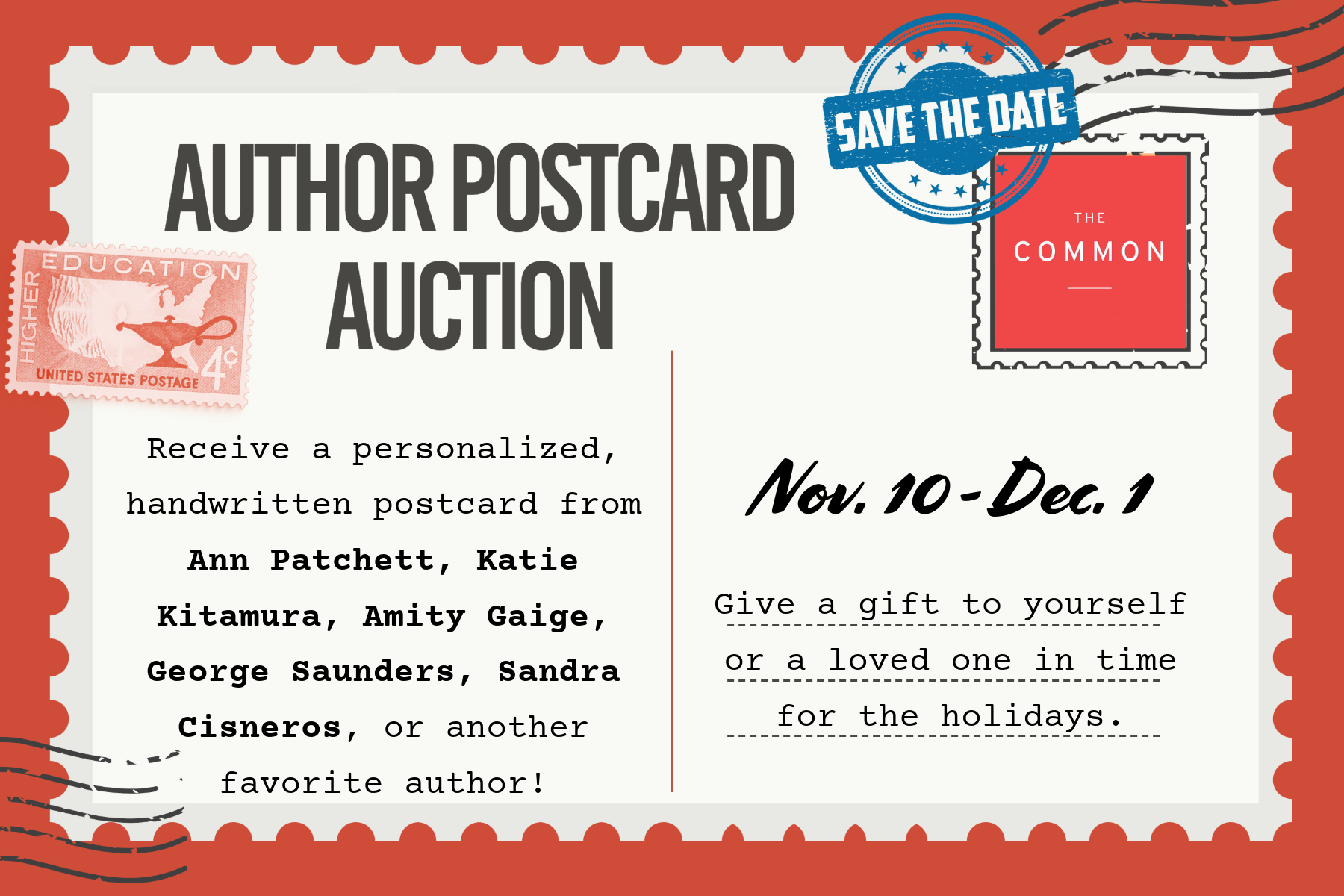In The Common office, we’re getting so excited for the work we’ll be publishing, both in print and online, in 2018. But it seems only fitting to give one last nod to the fantastic pieces that we brought out in 2017. Below is a list of our most-read pieces of the year: the poems, essays, interviews, and art that made 2017 our biggest year yet for web traffic from around the world! We hope you’ll have a look, if you haven’t already, and see why this work struck a chord with readers this year.
1. White people Always Want to Tell Me They Grew Up Poor by Megan Fernandes
White people don’t like when
you say:
white people.
White people
like to remind you
that you are Indian, not black. < read on >

2. Decriminalization: A Love Story by Susan Ferreira
Portugal’s remarkable recovery, and the fact that it has held steady through several changes in government could not have happened without an enormous cultural shift and collective change of heart around how the country viewed drugs, addiction, and itself. In many ways, the law was merely a reflection of transformations that were already happening in clinics, in pharmacies, and around kitchen tables across the country. < read on >
3. The Beauty of Boys Is by Vievee Francis

that they are not men,
that they have not settled into their beards and
remorse, their crow’s feet and givens.
There is not yet an investment in houses
settling onto their foundations, hair, or
yesterday. The boy senses his time is precarious … < read on >
4. Moan Soft Like You Wanted Someone Terrible by Vievee Francis
And if it comes to pass, the would be politician, or the lover,
and what was said was never meant, is now distant
as those moments your desire swirled about you
like new snow, cold and brisk and enlivening, remember
it was you feeling adrift,
misunderstood, calamitous, and alone, you dear,
who so needed the need grew into a rally, a rant
of promises now un-promised – < read on >
5. The Personal Essay is not Dead: An Interview with Mensah Demary by Melody Nixon
 Writers need to write, to see the world for what it is, absent appeal to wish fulfillment, then find the best language and descriptions to render onto the page the world as they see it—or perhaps I’m speaking only for myself. Widen your perspective, gain empathy, remain intellectually curious and skeptical, these things will wake you up. If it took the US presidential election for some—myself included—to wake up, then so be it. < read on >
Writers need to write, to see the world for what it is, absent appeal to wish fulfillment, then find the best language and descriptions to render onto the page the world as they see it—or perhaps I’m speaking only for myself. Widen your perspective, gain empathy, remain intellectually curious and skeptical, these things will wake you up. If it took the US presidential election for some—myself included—to wake up, then so be it. < read on >
6. Blood and Every Beat by Mensah Demary
Disney, the warship, captured the Star Wars universe, firing off in quick succession two movies: The Force Awakens, which continues the picking-over of the Skywalker family bones, and Rogue One: A Star Wars Story—that is, a side quest between Revenge of the Sith and A New Hope, which I paid sixty dollars to see, including four sets of black plastic 3-D glasses. < read on >
7. October Poetry Feature: Works by Zack Strait, Linda Ashok, Jacob Shores-Argüello, and Catherine Pond
There’s nothing else like it, my father says. He has spent his life
admiring this light, photographing the long tubes
of glass. All heated by hand torches, and cannon, ribbon
and crossfire burners. Bent into symbols
by men like himself, then filled with noble gases. < read on >
8. Siliguri: My Found Town by Sumana Roy
 It is only appropriate that I have no memory of my first journey to Siliguri—I have no memory of my journey to this world either. I make this equivalence without sentimentality—I have lived here, in this small sub-Himalayan Indian town, for most of my life. And even when I haven’t, I’ve been aware of its grainy centripetal force. I was three—I trust my parents, particularly my statistician father, on this. My brother was one—which means he didn’t actually exist, except in the laps of our parents.< read on >
It is only appropriate that I have no memory of my first journey to Siliguri—I have no memory of my journey to this world either. I make this equivalence without sentimentality—I have lived here, in this small sub-Himalayan Indian town, for most of my life. And even when I haven’t, I’ve been aware of its grainy centripetal force. I was three—I trust my parents, particularly my statistician father, on this. My brother was one—which means he didn’t actually exist, except in the laps of our parents.< read on >
9. Drawing From Experience by Fred Lynch

Drawing on site is an experience as well as an art. It’s extra-sensory. As I sit and draw for hours on the streets, I soak up every inch of the scene, along with its sounds, smells and local characters. < see more >
10. History is Not Over: An Interview with Viet Thanh Nguyen by Alexander Bisley
 Watching [Vietnam war] movies was one of the primary motivators to want to be a writer, because I wanted to be able to tell the stories of Vietnamese people that were very different than what were being shown in these films. That was what led to writing the short stories of The Refugees; I was simply focused on humanizing Vietnamese people and telling their stories. By the time I got to The Sympathizer, I felt freed up to become a much more political writer and to directly address Apocalypse Now and what it represented in terms of the willful American ignorance towards others. < read on >
Watching [Vietnam war] movies was one of the primary motivators to want to be a writer, because I wanted to be able to tell the stories of Vietnamese people that were very different than what were being shown in these films. That was what led to writing the short stories of The Refugees; I was simply focused on humanizing Vietnamese people and telling their stories. By the time I got to The Sympathizer, I felt freed up to become a much more political writer and to directly address Apocalypse Now and what it represented in terms of the willful American ignorance towards others. < read on >
Want more? You can browse all our 2017 pieces – art, fiction, essays, poetry, interviews, reviews, and so much more – from this list.




